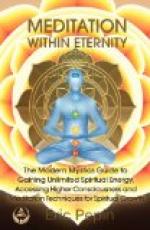MODERN EXAMPLES OF INTELLECTUAL COSMIC CONSCIOUSNESS: EMERSON; TOLSTOI; BALZAC
Passing over the ancient philosophers, Aristotle, Albertus Magnus, Plotinus, Marcus Aurelius, Pascal, Socrates, Plato, Aspasia, and others, all of whom had glimpsed, if not fully attained, cosmic consciousness, we come to a consideration of those cases in our own day and age, in which this superior consciousness has found expression through intellectual rather than through religious channels.
Of these latter, no more illustrious example can be cited than that of Ralph Waldo Emerson, the sage of Concord.
Emerson’s nature was essentially religious, but his religion was not of the emotional quality so often found among enthusiasts, and which is almost always openly expressed when this religious enthusiasm is not balanced by intellectuality.
Analysis is frequently a foe to inspiration, but there are fare instances where the intellect is of such a penetrating and extraordinary quality that it carries the power of analysis into the unseen; in fact what we habitually term the unseen is a part of the visible to this type of mind. True intellect is a natural inheritance, a karmic attribute. The spurious kind is the result of education, and it invariably has its limitations. It stops short of the finer vibrations of consciousness and denies the reality of the inner life of man—which inner life constitutes the real to the character of intellect that penetrates beyond maya.
Of such a quality of intellect is that exemplified in Emerson. No mere tabulator of facts was he, but a dissector of the causes back of all the manifestation which he observed and studied and classified with the mental power of a god.
Nor is there lacking ample proof that Emerson experienced the phenomenon of the suddenness of cosmic consciousness—a degree of which he seems to have possessed from earliest youth.
In his essay on Nature, we find these words:
“Crossing a bare common in snow puddles at twilight, under a clouded sky, without having in my thoughts any occurrence of special good fortune, I have enjoyed a perfect exhilaration. I am glad to the brink of fear.”
Emerson here alluded to a feeling of fear, which seems to have been experienced during a certain stage by many of those who have entered into cosmic consciousness. This fear is doubtless due to the presence in the human organism of what we may term the “animal instinct,” which is an inheritance of the physical body. This same peculiar phenomenon oppresses almost everyone when coming into contact with a new and hitherto untried force.
A certain lady, who relates her experience in entering into the cosmic conscious state, says: “A certain part of me was unafraid, certain, secure and content, at the same time my mortal consciousness felt an almost overwhelming sense of fear.”
Continuing, Emerson says:




